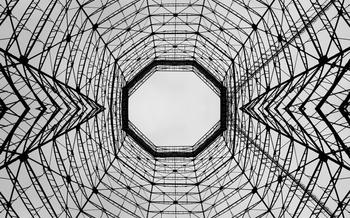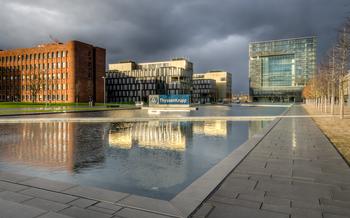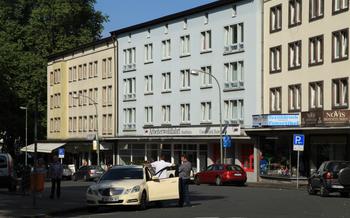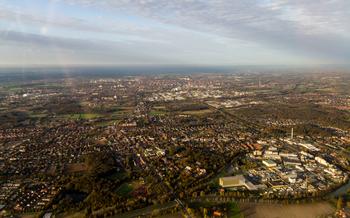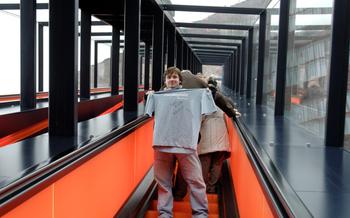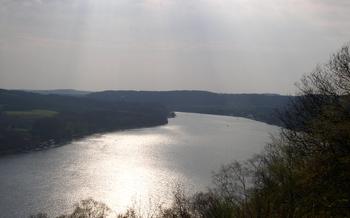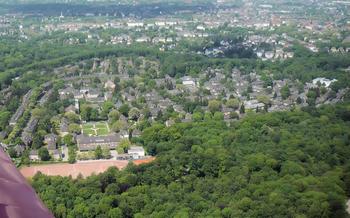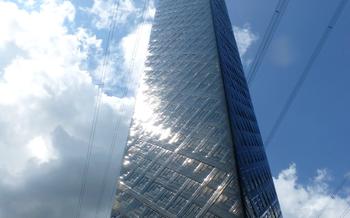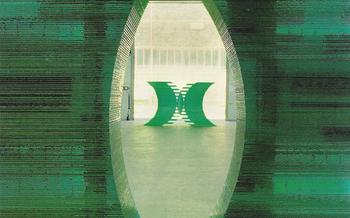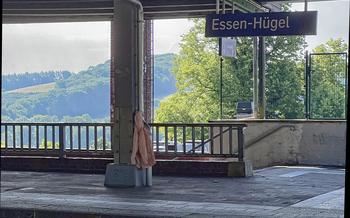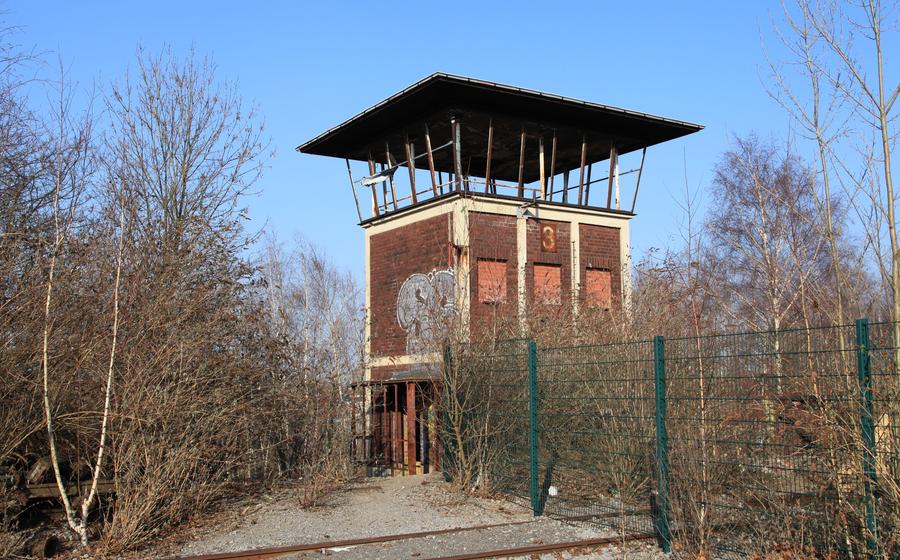
DASA Working World Exhibition in Dortmund
- The DASA Working World Exhibition: A Unique Experience
- Exploring the World of Work Through Interactive Exhibits
- Unique Features of the Exhibition
- Thematic Zones and Their Focus Areas
- Interactive Exhibits and Their Educational Value
- Engaging Visitors with Real-Life Work Scenarios
- Time Travel Through Industrial History
- Understanding the Future of Work
- The Human Factor in the Working World
- Hands-On Activities for All Ages
- Educational Programs and Workshops:
- Events and Exhibitions
- Visitor Services and Amenities
- Getting to the DASA Working World Exhibition
- Opening Hours and Admission Fees
- Nearby Attractions and Points of Interest
- Accommodation and Dining Options
The DASA Working World Exhibition: A Unique Experience
In the heart of the vibrant Ruhr region, the DASA Working World Exhibition invites visitors on an immersive journey through the past, present, and future of work. Housed in a striking architectural complex, the exhibition offers a comprehensive exploration of human interactions with the world of work, using captivating exhibits, interactive displays, and hands-on experiences.
The DASA Working World Exhibition was established in 2009 as a unique platform to showcase the significance of work in society. It aims to bridge the gap between the traditional museum experience and modern interactive learning, providing a dynamic and engaging environment for visitors of all ages. The exhibition's diverse themes and exhibits cater to a wide range of interests, making it a must-visit destination for anyone seeking to understand the complexities of the modern workplace.
Exploring the World of Work Through Interactive Exhibits
The DASA Working World Exhibition captivates visitors with its unique and interactive exhibits, making it a truly immersive experience. Each exhibit is designed to highlight a specific aspect of the working world, allowing visitors to engage with the content in a hands-on and meaningful way.
Unique Features of the Exhibition
The exhibition features a variety of interactive exhibits that allow visitors to experience different work environments and tasks firsthand. These exhibits include virtual reality simulations, interactive touchscreens, and hands-on activities that challenge visitors to solve problems and make decisions.
Thematic Zones and Their Focus Areas
The exhibition is divided into several thematic zones, each focusing on a different aspect of the working world. These zones include "The World of Work Today," "The Future of Work," "Work and Technology," and "The Human Factor." Each zone features a range of interactive exhibits that explore the specific themes and issues related to that zone.
Interactive Exhibits and Their Educational Value
The interactive exhibits at the DASA Working World Exhibition provide a valuable educational experience for visitors of all ages. Through these exhibits, visitors can learn about different industries, job roles, and the challenges and opportunities associated with them. The exhibits also encourage visitors to think critically about the future of work and how they can prepare for the changes that are likely to occur.
Engaging Visitors with Real-Life Work Scenarios
The DASA Working World Exhibition captivates visitors by presenting real-life work scenarios that they can relate to. The interactive exhibits allow visitors to step into the shoes of a factory worker, a doctor, or a software engineer, giving them a firsthand experience of the challenges and rewards of different professions. This approach makes the exhibition highly engaging and memorable for visitors.
Time Travel Through Industrial History
At the DASA Working World Exhibition, visitors embark on a captivating journey through the annals of industrial history. Through meticulously curated exhibits, they witness the remarkable evolution of work and technology from the dawn of industrialization to the present day. Historical artifacts, immersive displays, and interactive experiences provide a vivid glimpse into the lives of workers from bygone eras, shedding light on their struggles, triumphs, and contributions.
The exhibition's historical exhibits showcase a vast array of machinery, tools, and equipment that shaped various industries, from coal mining to steel production. Visitors can marvel at the ingenuity and craftsmanship of early inventors, whose creations laid the foundation for modern manufacturing processes. They can also explore replicas of historical workplaces, from a bustling textile mill to a cramped coal mine, gaining insights into the harsh working conditions and safety hazards that workers faced in the past.
The DASA Working World Exhibition offers a unique opportunity to understand the profound impact of industrialization on society. Through interactive displays, visitors can explore the social, economic, and cultural transformations that accompanied the rise of factories and mass production. They can learn about the emergence of labor movements, the fight for workers' rights, and the changing roles of men and women in the workplace.
Understanding the Future of Work
The DASA Working World Exhibition takes visitors on a captivating journey into the realm of the future, showcasing ground-breaking exhibits that offer a glimpse into the rapidly evolving world of work. Futuristic displays predict the trajectory of technology and its profound impact on the workplace, delving into the convergence of artificial intelligence, robotics, automation, and digital transformation. Visitors can explore emerging industries and job trends, gaining valuable insights into the skills and knowledge required to thrive in the coming years. Through interactive exhibits and thought-provoking installations, the exhibition encourages visitors to critically examine the challenges and opportunities presented by the ever-changing landscape of work, preparing them to navigate the complexities of the future job market.
The Human Factor in the Working World
The DASA Working World Exhibition sheds light on the human experiences that shape the world of work. Through engaging exhibits, visitors gain insights into the importance of teamwork and collaboration, as well as the challenges and solutions that arise in various work environments.
Interactive displays allow visitors to explore the dynamics of teamwork, showcasing how collaboration can enhance productivity and innovation. The exhibition also addresses real-life work-related challenges, such as stress, burnout, and work-life balance, offering practical solutions and strategies for coping with these issues.
The exhibition highlights the value of human interaction and communication in the workplace, emphasizing the importance of building strong relationships with colleagues and fostering a positive work environment. By showcasing the human stories behind different professions, the DASA Working World Exhibition encourages visitors to reflect on their own experiences and aspirations in the world of work.
Hands-On Activities for All Ages
The DASA Working World Exhibition offers a captivating range of interactive exhibits designed to engage visitors of all ages through hands-on experiences. Children and adults alike can experiment with various tools, machines, and simulations to gain a deeper understanding of different work environments. Interactive exhibits allow visitors to operate a virtual crane, navigate a forklift simulator, and even try their hand at welding. These hands-on activities not only entertain but also educate, providing a unique and memorable learning experience for all visitors.
Educational Programs and Workshops:
The DASA Working World Exhibition goes beyond mere exhibits to offer educational programs and workshops that cater to diverse audiences. Students and professionals can participate in workshops designed to enhance their knowledge and skills related to the world of work. These workshops often focus on specific industries, emerging trends, and career development strategies. Educators and researchers have access to specialized programs that delve deeper into the historical, sociological, and economic aspects of work. The exhibition's commitment to lifelong learning and career advancement makes it an invaluable resource for individuals seeking to navigate the ever-changing landscape of the modern workplace.
Events and Exhibitions
The DASA Working World Exhibition is not just a static collection of exhibits; it is a dynamic platform for events and exhibitions that explore the ever-evolving world of work. Temporary exhibitions on specific topics delve deeper into particular industries, emerging trends, or historical turning points. These exhibitions offer visitors a chance to explore niche interests, gain specialized knowledge, and engage with experts in the field.
In addition to temporary exhibitions, the DASA Working World Exhibition also hosts a variety of special events and conferences. These events bring together professionals, researchers, and thought leaders from various industries to discuss pressing issues, share insights, and network with peers. From workshops on future skills to conferences on digital transformation, these events provide valuable opportunities for learning, collaboration, and industry networking.
Whether you are a student, a professional, or simply someone with a passion for understanding the world of work, the DASA Working World Exhibition's events and exhibitions offer something for everyone. Keep an eye on their website or social media channels for upcoming events and exhibitions, and plan your visit accordingly to make the most of your experience.
Visitor Services and Amenities
The DASA Working World Exhibition is dedicated to providing a comfortable and enjoyable experience for all visitors. Accessibility features and facilities are in place to ensure that everyone can fully experience the exhibition. Multi-lingual support is available through signage, audio guides, and knowledgeable staff who can assist visitors in their preferred language. Guided tours are also offered to provide a deeper understanding of the exhibits and their significance.
Dining options and relaxation areas are conveniently located within the exhibition space. Visitors can take a break from exploring the exhibits and enjoy a variety of food and beverages at the on-site café or restaurant. Comfortable seating areas are available for visitors to rest and reflect on their experiences.
Getting to the DASA Working World Exhibition
The DASA Working World Exhibition is ideally situated in the heart of the vibrant city of Dortmund, making it easily accessible by various transportation means. Located at Hansastraße 25, 44137 Dortmund, the exhibition is well-connected to public transportation networks. Visitors can hop on the U-Bahn (metro) lines U41, U43, or U44 and get off at the "Dortmund Westfalenpark" station, which is just a short walk from the exhibition entrance. Alternatively, numerous bus lines, including the 411, 421, 422, 431, 441, 442, and 443, stop at the "Westfalenpark" bus stop, providing convenient access to the exhibition.
For those arriving by car, the DASA Working World Exhibition offers ample parking spaces at the neighboring Westfalenpark car park. The car park is reasonably priced and provides easy access to the exhibition, ensuring a hassle-free visit. Visitors can follow clear road signs to reach the exhibition and enjoy a smooth parking experience.
Opening Hours and Admission Fees
The DASA Working World Exhibition follows specific operational hours to ensure the best visitor experience. Its opening days and times are typically from Tuesday to Sunday, with closures on Mondays and select holidays. Visitors are advised to check the official website or contact the exhibition directly for the most up-to-date information on opening hours, as they may occasionally adjust.
Admission fees vary depending on visitor categories. Regular adult tickets typically range from 12 to 15 euros, while reduced rates apply to students, seniors, and people with disabilities. Family tickets, which offer discounted rates for groups of adults and children, are also available. Visitors can purchase tickets online or directly at the exhibition's ticket counter.
The DASA Working World Exhibition offers various discounts and concessions to make it accessible to a wider audience. These may include special rates for groups, educational institutions, and visitors with certain memberships or affiliations. Advance booking is recommended, especially for groups and school visits, to secure a spot and avoid waiting times.
Nearby Attractions and Points of Interest
Beyond the DASA Working World Exhibition, Dortmund and the Ruhr region offer a plethora of attractions for visitors to explore. The city of Dortmund itself boasts several museums, including the Dortmund Museum of Art and Cultural History, which showcases the region's rich history and cultural heritage. The Westfalenpark, with its botanical garden, rose garden, and Japanese garden, provides a tranquil oasis amidst the urban landscape.
The Ruhr region, known for its industrial past, offers unique attractions like the Zollverein Coal Mine Industrial Complex, a UNESCO World Heritage Site, which offers guided tours and insights into the region's mining history. The Gasometer Oberhausen, a former gas storage facility, has been transformed into an exhibition space hosting art exhibitions and cultural events.
For those interested in exploring the region further, the Ruhrgebiet Card offers free or discounted admission to over 100 attractions, including museums, theaters, and swimming pools, making it an excellent value for money for extended stays.
Whether you're interested in art, history, or industrial heritage, Dortmund and the Ruhr region have something to offer every visitor. By combining a visit to the DASA Working World Exhibition with other attractions in the area, you can create a comprehensive and memorable itinerary that showcases the region's diverse offerings.
Accommodation and Dining Options
When planning a visit to the DASA Working World Exhibition, you'll want to consider your accommodation and dining options. The surrounding area offers a diverse range of choices to suit different budgets and preferences.
Accommodation
For those seeking a convenient and comfortable stay, numerous hotels are located within walking distance of the exhibition. From budget-friendly options to upscale accommodations, there's something to suit every traveler.
Dining
A variety of restaurants and cafes are situated nearby, catering to a range of tastes and cuisines. Whether you're looking for a quick bite, a leisurely lunch, or a special dinner, you'll find plenty of options to satisfy your appetite.
Local Specialties
Be sure to sample some of the local specialties during your stay. Dortmund is renowned for its hearty Westphalian cuisine, featuring dishes such as "Pfefferpotthast" (beef stew with peppercorns) and "Rübenkraut" (a sweet and sour cabbage dish).
Planning Your Meals
To make the most of your time, consider planning your meals in advance. This will help you avoid wasting time searching for restaurants and ensure that you have a variety of dining options at your disposal.
Insider Tip:
If you're looking to indulge in a unique culinary experience, be sure to try the "Dortmunder Kronen" beer, brewed according to a centuries-old recipe.
